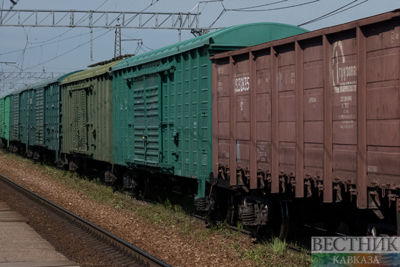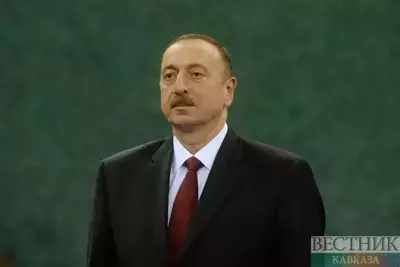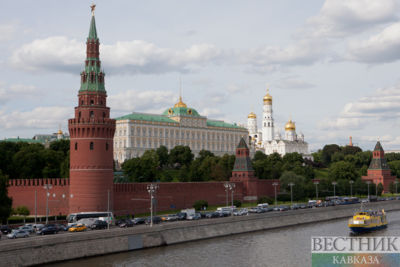In Karabakh, on the Shusha-Khankendi road, a peaceful protest of Azerbaijani eco-activists against the damage to the Azerbaijani environment and property caused by illegal mining in the temporary deployment zone of Russian peacekeepers enters the 4th day. All this time, the Russian peacekeepers have been blocking the Lachin corridor, while the protesters have been letting passing cars through. Armenia, meanwhile, is trying to represent the situation as a humanitarian crisis. Vestnik Kavkaza discussed with Tatyana Poloskova, the Ph.D. in Political Sciencу, Class 1 Active State Advisor of the Russian Federation, a member of the Roscongressclub private club for the Intellectual, business and political elite, the solution of the whole complex of problems in Karabakh and its impact on peace in the South Caucasus.
- Firstly, do Azerbaijani NGOs legally have the right of visiting the Russian peacekeepers’ temporary deployment zone, with escort and security provided by peacekeepers?
- I cannot recall that the signed trilateral agreement between Azerbaijan, Armenia and Russia, prohibits the citizens of Azerbaijan from visiting the territories temporarily under the control of Russian peacekeepers. Especially when it comes to the missions of non-governmental organizations. It is necessary to notify ahead of such visits, of course, and the visitors must be accompanied to ensure safety. But there is no provision for putting up barriers and not letting anyone into the territory.
Thus, the question arises whether this vigilance towards representatives of the Azerbaijani public is only due to the fact that they were mistaken for militants. Is there anything to hide? NGOs representatives came to monitor not the state of the barracks and armory, but publicly open objects. I believe that the Russian side, on the contrary, is interested in showing openness and a desire for dialogue.
For those servicemen who dared to interfere with the work of the Azerbaijani media in the zone of the incident, and in a rather rude way, it is necessary to conduct additional political classes and remind them that in Russia, for example, there is criminal liability for such actions.
I also want to remind you that the military must treat politely and with restraint the civilian local population, living on its territory, and not in a "zone of occupation". And in no case create dangerous precedents, as, for instance, it was in Panama.
Of course, in our case, we are not talking about a military base. These are temporary peacekeeping forces. But let me, nevertheless, compare these situations. It was after the conflict with the local population that resulted in the execution of students and schoolchildren who, according to the US military, expressed excessive curiosity about the military base, the US military presence in this country came to an end.
Russia, in its turn, cannot afford to lose its remaining friends. The geopolitical situation is not as it was.
- Will the complete withdrawal of Armenian illegal armed formations from the region help our peacekeepers to fulfil their duties in Karabakh?
- Even the Russian community of Azerbaijan, a very authoritative organization, is calling on Russia to facilitate the early withdrawal of the Armenian illegal armed formations (which, by the way, should have happened a long time ago), but nothing happened. Again, this means that it is beneficial for some players to keep illegal armed formations in the region.
Based on my experience of staying in the so-called hot spots (I spent almost two years intermittently in Syria), I know that illegal armed formations are least of all concerned with maintaining peace and harmony. They are usually involved in drug trafficking, arms sales and other criminal activity.
But the head of this octopus is not in Karabakh. The situation can be resolved with political desire and will. The devil is not as black as he is pained.
- How will the withdrawal of Armenian illegal armed formations from Karabakh affect the Armenian-Azerbaijani processes?
-In my opinion, the relations between Azerbaijan and Armenia and the activities of illegal armed formations in Karabakh are two parallel lines. IAG is a bloody business, whose leaders and patrons from various spheres, including political, use such issues as protecting the rights of people, religions, Amazonian tortoises and Amur tigers purely for the implementation of other tasks.
What have these illegal armed formations done to Karabakh? And for Syria, which is now split into three parts and is unlikely to be united in the near future. In the coming months, I will publish a book, Syrian Diaries, based on materials gathered during my stay in Damascus, Latakia, Homs, Tartus. This book contains an analysis of the consequences of the activities of some illegal armed formations in Syria, and curious parallels with the situation in Karabakh are possible.
The sooner Karabakh is liberated from these illegal armed formations, the sooner stability will be achieved. And I cannot fail to note that Azerbaijan would have coped with this task on its own long ago.
- In your opinion, when may the return of the Azerbaijani population of Karabakh back home begin? Could Russian peacekeepers assist in this process?
- I will be able to answer this question only after visiting Karabakh and conducting monitoring there, at least in the form of an expert survey. I recognize only field research. I respect the opinion of colleagues very much, I always take it into account, but I prefer to study the problem and draw conclusions myself.
I am planning such a trip. I think that the authorities of Azerbaijan will provide me with possible assistance and certainly will not interfere. Karabakh was and remains the territory of Azerbaijan, and naturally I will coordinate such a study with the Azerbaijani side.
Of course, we want the return of the Azerbaijani population to their homes to start as soon as possible. Moreover, Karabakh also needs an influx of professionals for its economic and cultural development. This land has already drained the cup to the dregs. Karabakh has definitely returned to its native harbor.
















